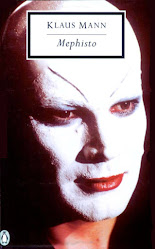The Loyal Subject, also published in English as The Patrioteer or Man of Straw, is the satirical story of Diederich Hessling, a man fiercely loyal to the Emperor at a time of societal upheaval (early twentieth century, just before the outbreak of WWI). The story follows him as he experiences college, romance, taking over his father's business, trying to establish himself in the town, marriage, and so on.
Hessling is "an average man, with a commonplace mind, the creature of circumstance and opportunity, without courage so long as things were going badly for him here, and tremendously self-important as soon as they had turned in his favour." He worshiped power, believed "Blood and iron are still the most effective remedy!" and learned that "public opinion was veering round quietly to the side of those who were more clever and powerful." He was a scoundrel and hypocrite; proclaiming courage, he was a coward; righteousness, he was wicked; truth, he was a liar. He questioned it at times- at one point, he "was forced to question the value of what he had attained or was still striving for; Guste [his wife] and her money, the [Kaiser Wilhelm] monument, the favour of the authorities, Gausenfeld [business venture], distinctions and high office." Yet "What had he now? What were the rewards in the service of Power?" But ultimately, he cared only for power, even as "on all sides Europe is being driven along this road to national ruin."
This was a heartbreaking and sobering read. I wanted to put it down at times because I disliked the main character so much. It was a good portrait of a person who believes he is right(eous) and will commit any manner of wickedness to further his aim (which was mostly power and self-indulgence). He hardens his heart to justify his misdeeds, making others out to be the enemy (or blaming them for his own follies). Though set in the context of warring political factions, his story is indicative of us all and the reality of our sinful hearts in any sphere- we justify misconduct, we blameshift, etc. all in the means of attaining whatever it is we seek- whatever our idols happen to be.
The book was good. I missed some things, I'm sure- I had trouble following some of the dialogue and plot, but I suspect this is due to my own ignorance of the culture of the time. I got the main point, and how sad it was (especially in light of what Germany would experience in the subsequent decades). There are some disturbing parallels to recent history and even present day. Power ebbs and flows, and sometimes we see that the power of those in charge "has brought neither more intelligence nor more kindness into the world." People will side with power, even when those in charge are wrong and lead the land into disaster.
Rating: A-










